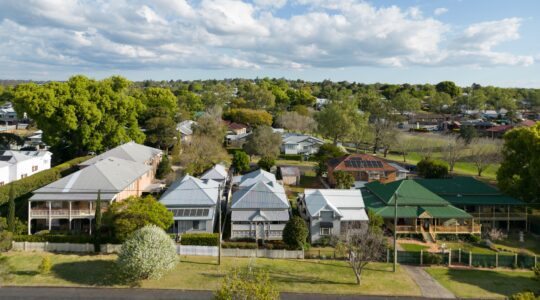Queensland’s skills shortage would be eased and the economy boosted by almost $2 billion if existing migrant workers were employed based on their qualifications, a new report has found.
A study by Settlement Services International has found more than 620,000 migrant workers, already in Australia, did not have the opportunity to fully use their skills.
SSI CEO Violet Roumeliotis said Australia’s migration program was designed to attract international talent, particularly to address national skills shortages, but the research showed that thousands of migrants were unable to work to their full potential.
Ms Roumeliotis said that despite typically having higher qualification levels than their Australian-born counterparts, almost half (44 percent) of migrants and refugees in Australia were working in roles below their skill level.
She said the report Billion Dollar Benefit: The economic impact of unlocking the skills potential of migrants in Australia quantified the economic benefit of unlocking this workforce, finding $70 billion could be added to the economy over the next 10 years if permanent migrants worked in jobs that matched their skills at the same rate as Australian-born workers.
“Around 51,000 full-time jobs would be added to the economy, wages would increase for migrant and non-migrant workers alike, and productivity would increase at the industry level, with construction, manufacturing, trade and financial service among the industries with the largest productivity increases,” Ms Roumeliotis said.
In Queensland it was predicted an 9706 jobs could be filled and $1.8 billion added to the economy.
“For years, we’ve known that the underutilisation of skills and qualifications was an issue for our migrant and refugee workforce, but for the first time, we can now quantify just what we as a country are missing out on,” Ms Roumeliotis said.
Key findings for the report:
- Recent migrants are 1.7 times more likely to hold a university-level qualification compared to the Australian-born workforce.
- Migrant workers are currently earning $3.9 billion less than they would if they worked at their skill level at the same rate as Australian-born workers.
- Industries that would see the greatest increase in employment from harnessing the skills of migrant workers are professional services, public administration, and education. But other industries – construction, manufacturing, trade and financial service industries – would have the largest productivity increases.
- The results also indicate a growth in the output of the dwellings sector – that is, housing supply increases because of a more productive and better resourced construction industry.
- Every state and territory would benefit from better utilising the skills of migrants. The largest benefits would flow to New South Wales (increasing the state economy by $2.5b and 12,357 jobs), Victoria ($2.2b and 12,351 jobs), Queensland ($1.8b and 9,706 jobs) and Western Australia ($1b and 4,148 jobs).
- The underutilisation of migrants is not due to the fields of study they are qualified in. Across every broad field of study, migrants are less likely to be working at the correct skill level, relative to their Australian-born counterparts – despite, on average, being more qualified.








